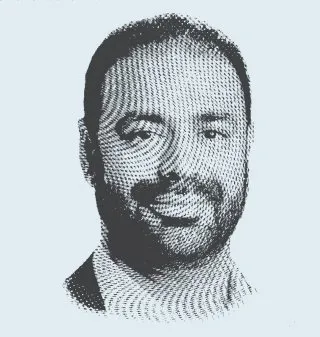On January 11, Saudi Crown Prince Mohammed bin Salman called President Joseph Aoun to congratulate him on his election as President of Lebanon and to invite him to visit Saudi Arabia. Aoun welcomed the Saudi invitation, replying that Riyadh would be the first country he visits.
Earlier, on December 26, when Joseph Aoun was still the commander of the Lebanese army, he visited Saudi Arabia and met with Defense Minister Prince Khalid bin Salman. In a post on X, Prince Khalid wrote that they "reviewed bilateral defense relations and discussed the latest developments in Lebanon."
In the interval between the phone call and the meeting, Saudi Arabia made a political push and reached out to various Lebanese, Arab and international actors to support Lebanon’s presidential election process and prevent extending the presidential vacuum. These efforts culminated in Aoun’s election as president.
The designation of ICJ President Nawaf Salam as Prime Minister on January 13, in light of Aoun’s consultations with parliamentary deputies at the Presidential Palace, then followed. Together, these two developments ensured that all three branches of government now have a leader, filling constitutional gaps and streamlining the political process.
The next step is forming a new government. Its composition will be a key indicator of the Lebanese people's ability to administer the state after the recent Israeli conflict and significant developments that have unfolded in the Middle East, notably in Syria and the occupied Palestinian territories. Moreover, shifting regional power dynamics have come at the cost of Iran and its "Resistance Axis," which was weakened by the blows dealt to Hezbollah and Hamas, as well as the collapse of former Syrian President Bashar al-Assad’s regime. Assad’s fall means that Syria is definitely no longer part of the Axis, effectively cutting off Hezbollah’s supply lines through Syrian territory.
These structural changes might entice some Lebanese factions to take a domineering approach on the assumptions that one faction has won while another has lost, potentially leading to exclusionary and majoritarian policies. However, doing so would be short-sighted, and it would reflect a failure to learn the lessons of history. Indeed, similar isolationist policies aimed at imposing hegemony over certain groups have been made in the past, by Palestinians and other factions during the Lebanese Civil War of 1975 and earlier. The outcomes proved disastrous for those who pursued this approach and posed a grave threat to civic peace in Lebanon.
Following Joseph Aoun’s election, Saudi Arabia expressed clear positions through its ambassador to Lebanon, Waleed Bukhari. According to a statement from the Maronite Patriarchate, Bukhari said that he hoped Aoun’s term would be one of "broad national consensus, growth, prosperity, progress, and stability." He added, "The Kingdom will stand by Lebanon, its people, and its president." These remarks highlight Saudi Arabia’s policy of supporting stability in Lebanon and efforts to ensure that it remains a nation for all its citizens where no sect is discriminated against.
Several crucial challenges await Lebanon. It must secure its borders, end Israel’s violations, facilitate the return of displaced persons to their villages and homes, embark on reconstruction, safeguard state institutions from collapse, strengthen the rule of law, and combat corruption and sectarian quotas. Other critical priorities include ensuring that the state enjoys a monopoly on the use of arms, developing a national defense strategy, addressing economic concerns related to depositors' deposits, and drawing foreign investment to create jobs and build a modern diversified economy.
These urgent issues require cooperation among all Lebanese communities, as well as the various parties and political forces. It is essential to move beyond the sectarian mindset of mutual distrust and work toward building genuine partnership. The Lebanese have the power to make this new era a phase of real change themselves. They now have a historic opportunity to build a modern state, despite the immense destruction they have endured and the tragic loss of thousands of lives, as well as the displacement and devastation of homes and villages as a result of Israel’s assault.
Influential Arab countries, led by Saudi Arabia, are currently supporting Lebanon’s political process. The aim is to reinforce its territorial unity, security and stability, as well as to help the nation break free from the regional power struggles that have taken a heavy toll on its security, development and the future of its people for decades.
During the recent Israeli war on Lebanon, Saudi Arabia stood firmly with the Lebanese people, providing aid and medical supplies, and leveraging its international diplomatic ties to push back against Israeli aggression and support efforts to reach a sustained ceasefire. Now, Riyadh is seeking to end Israeli violations in Lebanon so that the latter can turn the page on this chapter and recover.
President Joseph Aoun and Prime Minister Nawaf Salam have a heavy burden on their shoulders, especially as they are not part of the traditional political class. They will encounter numerous domestic and foreign challenges, but they enjoy popular support and will be helped by the broad Arab sentiment that Lebanon deserves a fresh chance. In his inaugural address, Aoun pledged to foster good relations with Arab countries and make sure that Lebanon would not serve as a conduit for drug trafficking or any other actions that undermine stability.
The goal is not to make demands of Lebanon that it does not have the capacity to deliver on. What is needed is for the Lebanese factions to prioritize their objectives, embrace good governance, integrity and the rule of law, and bring all weapons under the control of the state alone. If these principles are adhered to, Beirut will receive substantial support from allies, the economy will gradually recover, and tourists and investors will return, giving rise to a secure and stable Lebanon.












